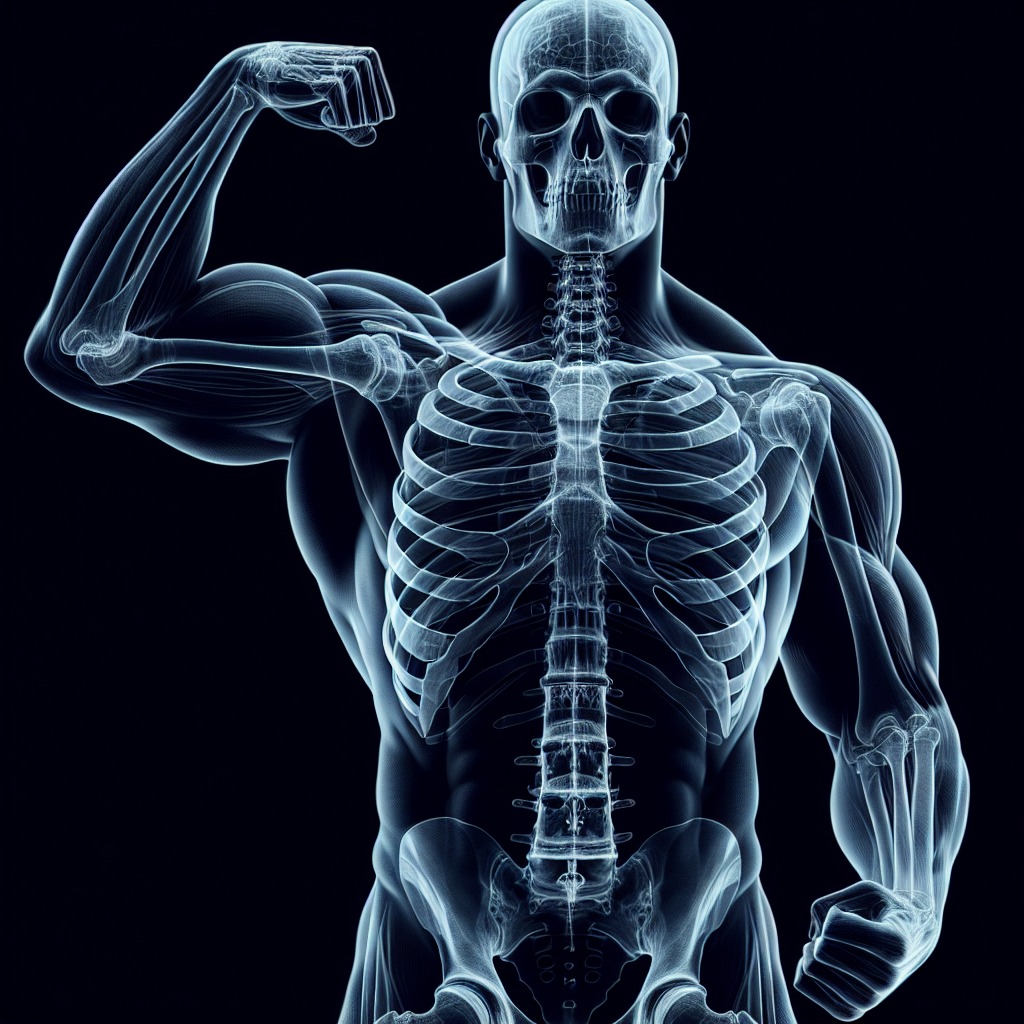Bone density is a critical factor in athletic performance, as it provides the structural foundation necessary for strength, stability, and endurance. This article delves into the importance of bone density for athletes, the factors that affect it, and strategies to enhance and maintain it for optimal performance and health.
The Foundation of Athleticism: Bone Strength and Density
Bones are living tissues that constantly remodel themselves. Bone density refers to the amount of mineral matter per square centimeter of bones, a key indicator of bone strength and health. For athletes, high bone density can lead to improved performance by providing a solid base for muscle attachment, enabling more powerful movements, and reducing the risk of fractures.
The Role of Exercise in Bone Health
Physical activity is essential for maintaining healthy bone density. Weight-bearing exercises such as running, jumping, and lifting weights stimulate bone growth and remodeling. This is why athletes often exhibit greater bone density than the general population. However, the relationship between exercise and bone health is nuanced. For instance, excessive high-impact activities may increase the risk of stress fractures, highlighting the need for a balanced and well-managed training regimen. To further explore this topic, The Role of Exercise in Enhancing Bone Mineral Content offers in-depth insights.
Nutritional Considerations for Peak Bone Density
Nutrition plays a pivotal role in achieving optimal bone density. Calcium and vitamin D are well-known for their importance in bone health, but other nutrients such as magnesium, vitamin K, and phosphorus are also crucial. Athletes must ensure their diet supports their skeletal needs, particularly when undergoing intense training periods. For more information on how nutrition and bone density are intertwined, readers can visit Bone Density and Nutritional Absorption: How They Interact.
Genetic and Lifestyle Factors
While exercise and nutrition are controllable factors, genetics also play a significant role in determining bone density. Some athletes may be genetically predisposed to higher bone density, giving them a potential advantage in sports. Lifestyle choices, such as avoiding smoking and excessive alcohol consumption, are also imperative for maintaining bone health.
For those interested in the genetic aspects of bone density, a resource that delves deeper can be found at The Influence of Genetic Factors on Bone Density, providing a comprehensive overview of the topic.
Bone Density and Injury Prevention
Adequate bone density is not only important for performance but also for injury prevention. Athletes with lower bone density are at increased risk of fractures, which can lead to extended periods away from training and competition. Implementing strategies to improve bone density is therefore crucial for both short-term performance and long-term health.
Monitoring and Improving Bone Health
Regular screenings and assessments can help monitor bone health, enabling timely interventions if needed. Athletes should consider periodic bone density scans as part of their overall health checks. For those recovering from injury, specialized programs may be necessary to safely rebuild bone strength. Strategies for Improving Bone Density Post-Injury is a valuable resource for those looking to recover bone density after a setback.
The Broader Perspective on Health and Performance
While focusing on bone density is essential, athletes should not neglect other aspects of their health. Factors such as cardiovascular, brain, and muscular health are all intertwined with bone health and overall athletic performance. Maintaining a holistic approach to health can lead to better outcomes on and off the field. For more on the larger context of health and fitness, Fitness provides a well-rounded view of the physical requirements for peak athletic performance.
External Resources for Further Reading
To complement the information in this article, several high-quality external resources are recommended:
- International Osteoporosis Foundation: Offers detailed information on bone health, including specific guidelines for athletes.
- National Institute of Arthritis and Musculoskeletal and Skin Diseases: Provides comprehensive resources on bone diseases and conditions, as well as prevention strategies.
- The American College of Sports Medicine: Features research and position stands on the role of physical activity in maintaining bone health.
- Journal of the International Society of Sports Nutrition: Publishes peer-reviewed articles on the impact of nutrition on athletes’ bone health and performance.
By integrating the principles of bone health into their training and lifestyle, athletes can enhance their performance, prevent injuries, and ensure long-term skeletal health. Understanding the significance of bone density is just one piece of the complex puzzle that is athletic excellence, but it is a cornerstone that should not be overlooked.



